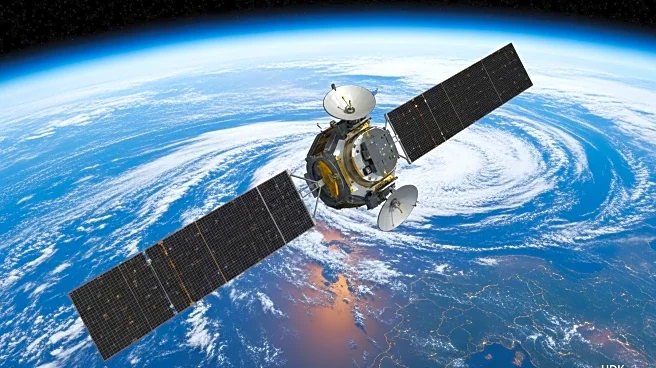What's Happening?
NASA's Applied Remote Sensing Training Program (ARSET) is conducting a two-part online training session on October 7 and 9, 2025. The training focuses on using NASA satellite data to track climate-sensitive vector-borne disease outbreaks. Participants will learn how to apply satellite remote sensing data to study or forecast diseases like malaria, which thrive in specific climates. The training will include case studies and provide access to freely available NASA remote sensing datasets. It is open to the public and recommended for professionals such as biostatisticians, medical students, vector ecologists, and public health officials.
Why It's Important?
The training is significant as it equips professionals with tools to predict and manage outbreaks of climate-sensitive infectious diseases. By utilizing satellite data, stakeholders can better understand the environmental conditions that contribute to disease proliferation. This knowledge is crucial for public health planning and response, potentially reducing the impact of diseases like malaria. The initiative supports global health efforts by providing accessible resources and training to a wide range of professionals, enhancing their ability to monitor and prepare for disease outbreaks.
What's Next?
Following the training, participants are expected to apply the knowledge gained to their respective fields, improving disease forecasting and management. The use of remote sensing data could lead to more accurate predictions and timely interventions, benefiting public health systems worldwide. Continued collaboration between NASA and health organizations may further advance the integration of satellite data in disease monitoring, fostering innovation in public health strategies.
Beyond the Headlines
The training highlights the intersection of technology and health, showcasing how advancements in remote sensing can contribute to global health security. It underscores the importance of interdisciplinary approaches in tackling complex health challenges, encouraging collaboration between scientists, health professionals, and policymakers. The initiative may also inspire further research into the applications of satellite data in other areas of public health.










